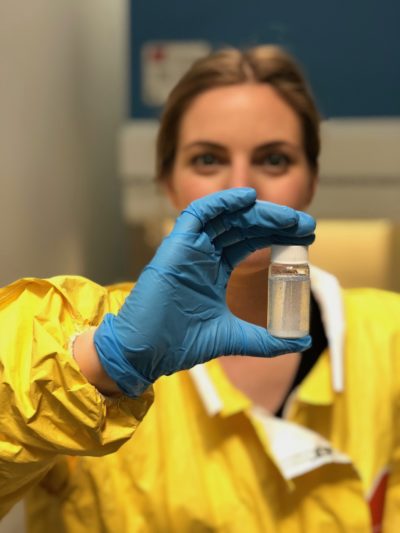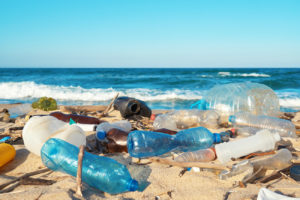Microplastics found in all Arctic belugas tested: SFU study
Rhiannon Moore, Researcher at the Ocean Wise Plastics Lab and member of the the Plastic Action Centre Expert Advisory Panel is the lead author a research study on microplastics in beluga whales from the Eastern Beaufort Sea. This study represents the first-ever report on microplastics in a marine mammal in Canada, and the most comprehensive study of its kind in the world.

A pioneering study of seven belugas in Canada’s remote Arctic waters has found microplastics in the innards of every single whale.
Researchers from Ocean Wise worked with hunters from the Inuvialuit community of Tuktoyaktuk, N.W.T., to collect samples from whales they harvested between 2017 and 2018.They found an average of nearly 10 microplastics, or particles less than five millimetres in size, in the gastrointestinal tracts of each beluga.
The study, published last week in the Marine Pollution Bulletin, was conducted in partnership with Fisheries and Oceans Canada and Simon Fraser University.
Ocean Wise says it is the first study of microplastics in a marine mammal in Canada.
Lead author Rhiannon Moore says she wasn’t expecting to see so many microplastics so far north.
“It actually surprised me at first. I thought, this is a far-north top predator in the Arctic in a fairly remote place,” Moore says in an interview.
It demonstrated just how far microplastics can travel and how they’ve penetrated even the most remote environments, she says.
“It definitely tells us they’re ubiquitous, they’re ending up everywhere,” she says. “It’s a global problem, it’s not a contained local problem, so it’s going to take a lot of different actors — government, industries and consumers — to try to limit the flow.”
Little known of plastics effects
Nine different types of plastic polymers were identified in the animals, with polyester being the most common.
While Moore says she believes they would have passed through the whales’ digestive tracts without any immediate consequences, there’s still very little known about the potential long-term health effects of prolonged exposure.
It’s also unknown how the microplastics entered the whales, but Moore says she thinks they most likely ate fish that had already ingested the plastic.
Her next study will focus on microplastics in beluga prey.



